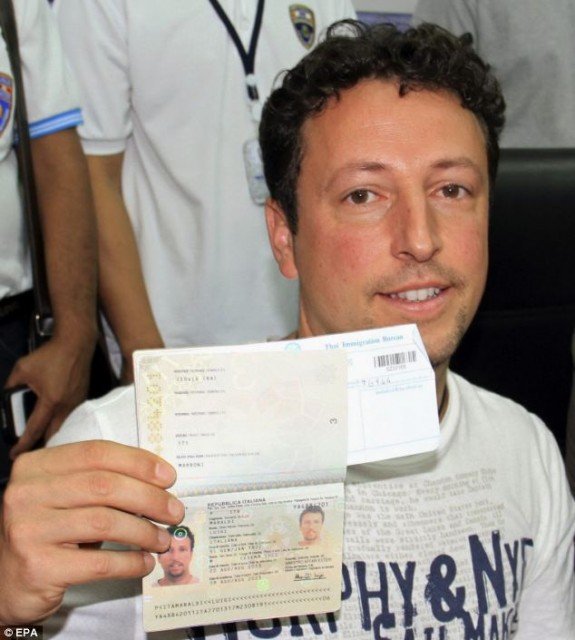One of the most alarming pieces of information to come out of Malaysia Airlines plane mystery is how easy it may be to use a stolen passport to board an international flight.
Two passengers using passports on the missing Malaysia Airlines flight were recorded in Interpol’s Stolen and Lost Travel Documents database, the international police organization confirmed on Sunday.
Vietnam’s navy planes have spotted possible debris of the missing Malaysia Airlines jet that disappeared almost two days ago.
Officials said it was too dark to be certain the objects were from Flight MH370, which had 239 people on board.
A multinational team is searching for wreckage and ships will try to confirm the find after dawn.
Investigators are also checking CCTV footage of two passengers who were travelling on stolen passports.
There are now 40 ships and 34 aircraft from nine different nations taking part in the search for the missing plane in the seas off Vietnam and Malaysia.
Other teams are investigating the identities of some of the people onboard.
Malaysia’s civil aviation chief, Azharuddin Abdul Rahman, said five passengers booked on the flight did not board and their luggage was consequently removed.
It has also been confirmed that two passengers were travelling on stolen passports.
The passengers – travelling with Italian and Austrian passports that had been stolen in Thailand – purchased their plane tickets at the same time, and were both booked on the same onward flight from Beijing to Europe on Saturday.

Both had purchased their tickets from China Southern Airlines, which shared the flight with Malaysia Airlines, and they had consecutive ticket numbers.
Both tickets were bought at identical prices in Thai currency, according to China’s official e-ticket verification system.
European authorities on Saturday confirmed the names and nationalities of the two stolen passports: One was an Italian-issued document bearing the name Luigi Maraldi, the other Austrian under the name Christian Kozel.
A telephone operator on a China-based KLM hotline on Sunday confirmed to Reuters “Luigi Maraldi” and “Christian Kozel” were both booked to leave Beijing on a KLM flight to Amsterdam on March 8.
“Luigi Maraldi” was then to fly to Copenhagen on KLM on March 8, and “Christian Kozel” to Frankfurt on March 8. She said the pair booked the tickets through China Southern Airlines so she had no information on where they bought them.
“Whilst it is too soon to speculate about any connection between these stolen passports and the missing plane, it is clearly of great concern that any passenger was able to board an international flight using a stolen passport listed in Interpol databases,” the Secretary General of international police agency Interpol, Ronald Noble, said in a statement.
Ronald Noble said no checks of Interpol’s database had been made for either passport between the time they were stolen and the departure of the flight, and expressed frustration that few of Interpol’s 190 member countries “systematically” search the database.
Given their travel itinerary, it’s just as possible that the misidentified flyers were drug mules as terrorists.
The passport of the Italian man was stolen last year. Austrian Foreign Ministry spokesman Martin Weiss said the passport of the Austrian man was stolen two years ago. Both documents went missing in Thailand and were reported shortly thereafter, according to Interpol.
Passports reported lost or stolen are invalidated and, technically, can no longer be used for travel – yet individuals, including members of terrorist organizations, still manage to get across international borders with falsified travel documents.
Such documents are often obtained on the black market and put to use after a photograph swap. Investigations into the operations of terrorist organizations such as al-Qaeda showed that operatives traveled with falsified travel documents.
Malaysia’s Transport Minister Hishammuddin Hussein said all angles were being examined in the search for the what happened, but he added: “The main thing here for me and for the families concerned is that we find the aircraft.”
The passengers on the flight were of 14 different nationalities. Two-thirds were from China, while others were from elsewhere in Asia, North America and Europe.
Malaysia Airlines is the country’s national carrier, and one of Asia’s largest fleets, flying nearly 37,000 passengers daily to some 80 destinations worldwide.
Correspondents say the route between Kuala Lumpur and Beijing has become more and more popular as Malaysia and China increase trade.
[youtube qvXftuWNOUo 650]
